-
 bitcoin
bitcoin $87959.907984 USD
1.34% -
 ethereum
ethereum $2920.497338 USD
3.04% -
 tether
tether $0.999775 USD
0.00% -
 xrp
xrp $2.237324 USD
8.12% -
 bnb
bnb $860.243768 USD
0.90% -
 solana
solana $138.089498 USD
5.43% -
 usd-coin
usd-coin $0.999807 USD
0.01% -
 tron
tron $0.272801 USD
-1.53% -
 dogecoin
dogecoin $0.150904 USD
2.96% -
 cardano
cardano $0.421635 USD
1.97% -
 hyperliquid
hyperliquid $32.152445 USD
2.23% -
 bitcoin-cash
bitcoin-cash $533.301069 USD
-1.94% -
 chainlink
chainlink $12.953417 USD
2.68% -
 unus-sed-leo
unus-sed-leo $9.535951 USD
0.73% -
 zcash
zcash $521.483386 USD
-2.87%
What are the risks of USDT trading?
USDT trading involves issuer, exchange, and market risks, plus regulatory uncertainty and counterparty risk with Tether. Its claimed 1:1 USD peg isn't consistently verified, impacting value and investment security.
Mar 11, 2025 at 12:27 pm
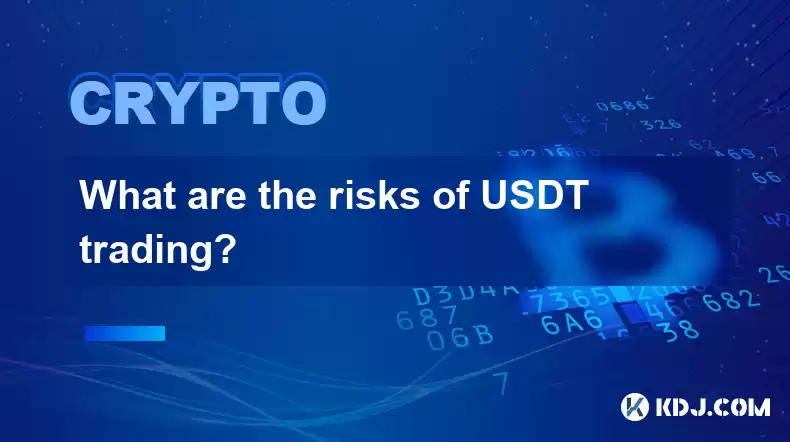
- Issuer Risk: USDT's value relies on Tether's ability to maintain a 1:1 peg with the US dollar. Concerns about its reserves and transparency introduce significant risk.
- Exchange Risk: The security and stability of the cryptocurrency exchange where you trade USDT are crucial. Exchange hacks or failures can lead to loss of funds.
- Market Volatility: While often considered a stablecoin, USDT's price can fluctuate, albeit usually slightly, impacting your trades. Unexpected events can cause larger swings.
- Regulatory Uncertainty: The regulatory landscape for stablecoins is evolving rapidly. Changes in regulations could significantly affect USDT's value and trading.
- Counterparty Risk: Using USDT involves trusting Tether, the issuer. Their financial health and actions directly influence the stability of the token.
What are the risks of USDT trading? USDT, despite its intention to maintain a 1:1 peg with the US dollar, carries several inherent risks that traders must understand before engaging in transactions. These risks stem from various sources, impacting both the value of the token and the security of your investments. Let's delve into the specifics.
One of the most significant risks is the issuer risk. Tether, the company behind USDT, has faced considerable scrutiny regarding the composition of its reserves. Questions about the true backing of USDT and the transparency of its operations have led to periods of market uncertainty and price volatility. Any doubts about Tether's ability to maintain the peg can trigger a sell-off, potentially devaluing your USDT holdings.
Closely related is the counterparty risk. This risk centers on the trust you place in Tether as a reliable issuer. If Tether faces financial difficulties or engages in actions that damage its credibility, the value of USDT could be negatively impacted. This risk highlights the importance of carefully evaluating the reputation and financial health of the issuer before engaging in significant USDT trades.
Trading USDT also exposes you to exchange risk. The security and reliability of the cryptocurrency exchange you use to buy, sell, or hold USDT are paramount. Exchanges are vulnerable to hacking, and a successful attack could lead to the loss of your USDT. Furthermore, exchange failures, insolvency, or regulatory actions against the exchange can also freeze your assets or prevent access to your funds. Due diligence in selecting a reputable and secure exchange is crucial.
Another significant factor is market volatility. While USDT aims for stability, it's not entirely immune to price fluctuations. Although these fluctuations are usually minor, unexpected events or market sentiment can cause significant, albeit temporary, deviations from the 1:1 peg. This volatility can impact the profitability of your trades, particularly if you're using leverage or engaging in complex trading strategies.
Furthermore, the regulatory uncertainty surrounding stablecoins like USDT presents a significant risk. Governments worldwide are grappling with how to regulate stablecoins, and the resulting legislation could drastically alter the legal landscape for USDT and its trading. Changes in regulations might restrict trading, impose new compliance burdens, or even lead to the outright banning of USDT in certain jurisdictions. Keeping abreast of regulatory developments is essential for navigating this risk.
The interconnected nature of these risks underscores the need for careful consideration before trading USDT. Each risk factor contributes to the overall uncertainty associated with this popular stablecoin. A diversified portfolio and a risk management strategy are vital to mitigate potential losses.
Frequently Asked Questions:Q: Is USDT truly backed 1:1 by the US dollar?A: Tether claims to maintain a 1:1 backing, but independent audits haven't consistently verified this claim, leading to ongoing debate and uncertainty about the true composition of its reserves.
Q: What happens if Tether fails to maintain the peg?A: If Tether fails to maintain the 1:1 peg, the value of USDT could significantly decrease, potentially resulting in substantial losses for holders. The extent of the loss depends on the severity of the de-pegging.
Q: How can I minimize the risk of trading USDT?A: Diversify your cryptocurrency portfolio, only trade on reputable exchanges, carefully research Tether's ongoing developments and regulatory actions, and implement a solid risk management strategy. Never invest more than you can afford to lose.
Q: Are there alternatives to USDT?A: Yes, other stablecoins exist, each with its own set of risks and benefits. Researching alternatives and comparing their backing mechanisms and transparency is recommended before choosing an alternative.
Q: What should I do if my USDT is locked on an exchange due to a security breach or insolvency?A: Contact the exchange immediately and follow their procedures for resolving the issue. The outcome depends on the specific circumstances and the exchange's policies. Legal action may be necessary in some cases.
Q: Is USDT legal everywhere?A: The legal status of USDT varies by jurisdiction. Some countries have specific regulations or outright bans on certain stablecoins, including USDT. Always check the local regulations before trading.
Q: Can I use USDT for all transactions like a normal currency?A: While many businesses accept USDT, its acceptance is not as widespread as traditional fiat currencies. The availability of merchants accepting USDT may vary depending on location and industry. Furthermore, transaction fees and processing times can also differ from traditional payment methods.
Disclaimer:info@kdj.com
The information provided is not trading advice. kdj.com does not assume any responsibility for any investments made based on the information provided in this article. Cryptocurrencies are highly volatile and it is highly recommended that you invest with caution after thorough research!
If you believe that the content used on this website infringes your copyright, please contact us immediately (info@kdj.com) and we will delete it promptly.
- Super Bowl LX: Coin Toss Trends Point to Tails Despite Heads' Recent Surge
- 2026-01-31 07:30:02
- Aussie Prospector's Ancient Find: Japanese Relics Surface, Rewriting Gold Rush Lore
- 2026-01-31 07:20:01
- US Mint Adjusts Coin Prices: Clad Collector Sets See Significant Hikes Amidst Special Anniversary Releases
- 2026-01-31 07:20:01
- THORChain Ignites Fiery Debate with CoinGecko Over Bitcoin DEX Definitions: A Battle for True Decentralization
- 2026-01-31 07:15:01
- Fantasy Football Frenzy: Key Picks and Pointers for Premier League Round 24
- 2026-01-31 06:40:02
- Cryptocurrencies Brace for Potential Plunge in 2026 Amidst Market Volatility
- 2026-01-31 07:15:01
Related knowledge
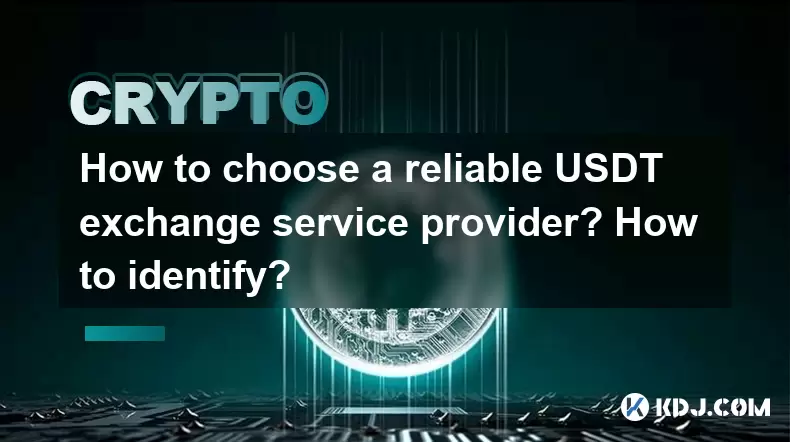
How to choose a reliable USDT exchange service provider? How to identify?
Jun 12,2025 at 03:15pm
Understanding the Role of USDT in Cryptocurrency TradingUSDT (Tether) is one of the most widely used stablecoins in the cryptocurrency market. It is d...
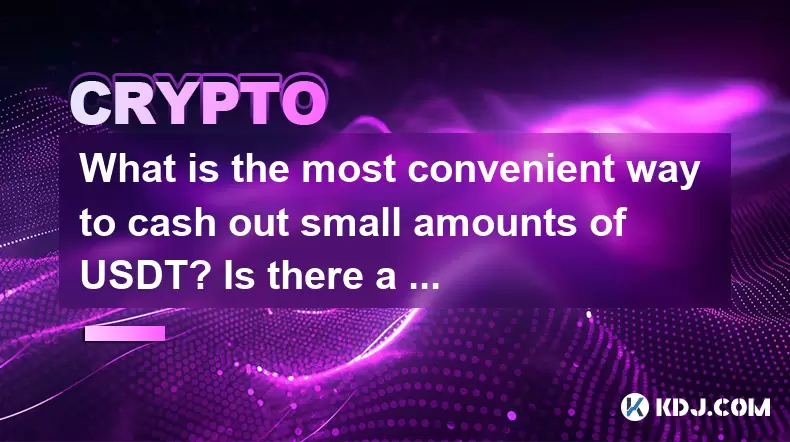
What is the most convenient way to cash out small amounts of USDT? Is there a shortcut?
Jun 11,2025 at 11:00pm
Understanding the Need to Cash Out Small USDT AmountsCashing out small amounts of USDT can be a challenge for many crypto users. Traditional methods o...
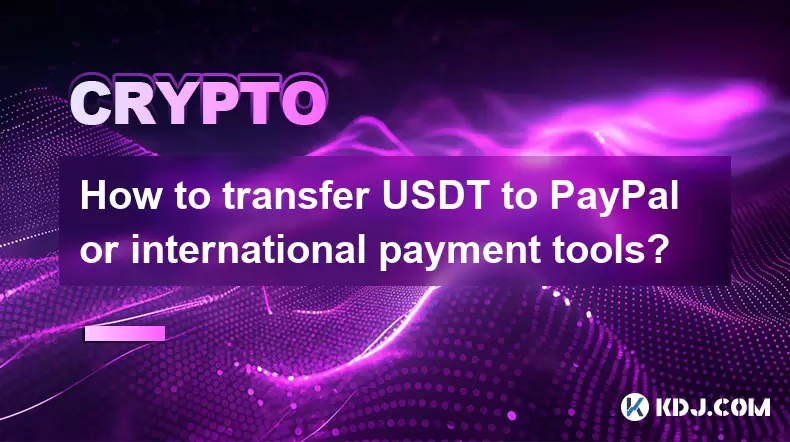
How to transfer USDT to PayPal or international payment tools?
Jun 15,2025 at 05:28am
Understanding the Basics of USDT and PayPal IntegrationUSDT (Tether) is a stablecoin pegged to the US dollar, offering blockchain-based value transfer...
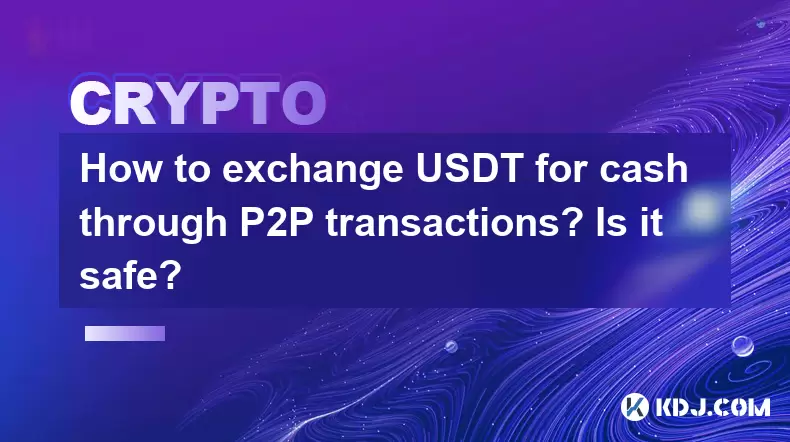
How to exchange USDT for cash through P2P transactions? Is it safe?
Jun 18,2025 at 07:56am
Understanding USDT and P2P TransactionsTether (USDT) is a stablecoin pegged to the value of the US dollar, making it a popular choice for users who wa...
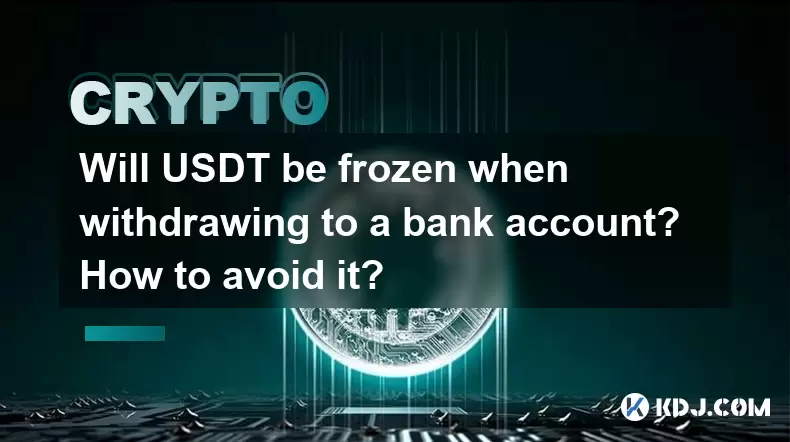
Will USDT be frozen when withdrawing to a bank account? How to avoid it?
Jun 15,2025 at 10:03am
Understanding USDT Withdrawals and Bank Account Freezing RisksWhen users decide to withdraw USDT (Tether) to a bank account, one of the most common co...
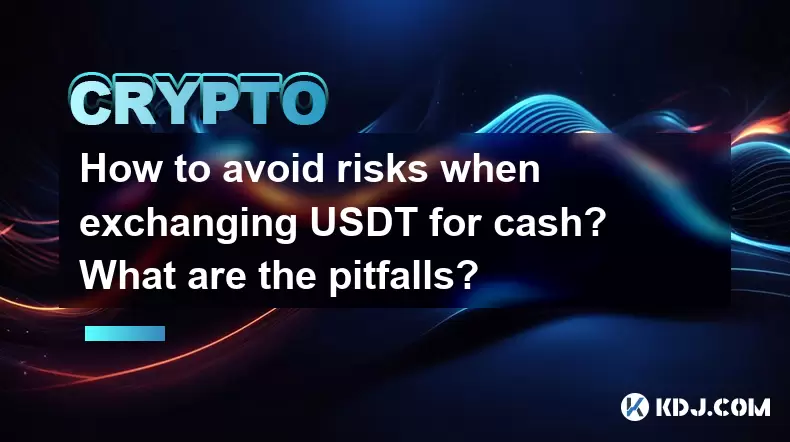
How to avoid risks when exchanging USDT for cash? What are the pitfalls?
Jun 11,2025 at 08:14pm
Understanding the Risks of Exchanging USDT for CashWhen exchanging USDT (Tether) for cash, users must be aware of the potential risks involved. As a s...

How to choose a reliable USDT exchange service provider? How to identify?
Jun 12,2025 at 03:15pm
Understanding the Role of USDT in Cryptocurrency TradingUSDT (Tether) is one of the most widely used stablecoins in the cryptocurrency market. It is d...

What is the most convenient way to cash out small amounts of USDT? Is there a shortcut?
Jun 11,2025 at 11:00pm
Understanding the Need to Cash Out Small USDT AmountsCashing out small amounts of USDT can be a challenge for many crypto users. Traditional methods o...

How to transfer USDT to PayPal or international payment tools?
Jun 15,2025 at 05:28am
Understanding the Basics of USDT and PayPal IntegrationUSDT (Tether) is a stablecoin pegged to the US dollar, offering blockchain-based value transfer...

How to exchange USDT for cash through P2P transactions? Is it safe?
Jun 18,2025 at 07:56am
Understanding USDT and P2P TransactionsTether (USDT) is a stablecoin pegged to the value of the US dollar, making it a popular choice for users who wa...

Will USDT be frozen when withdrawing to a bank account? How to avoid it?
Jun 15,2025 at 10:03am
Understanding USDT Withdrawals and Bank Account Freezing RisksWhen users decide to withdraw USDT (Tether) to a bank account, one of the most common co...

How to avoid risks when exchanging USDT for cash? What are the pitfalls?
Jun 11,2025 at 08:14pm
Understanding the Risks of Exchanging USDT for CashWhen exchanging USDT (Tether) for cash, users must be aware of the potential risks involved. As a s...
See all articles










































































